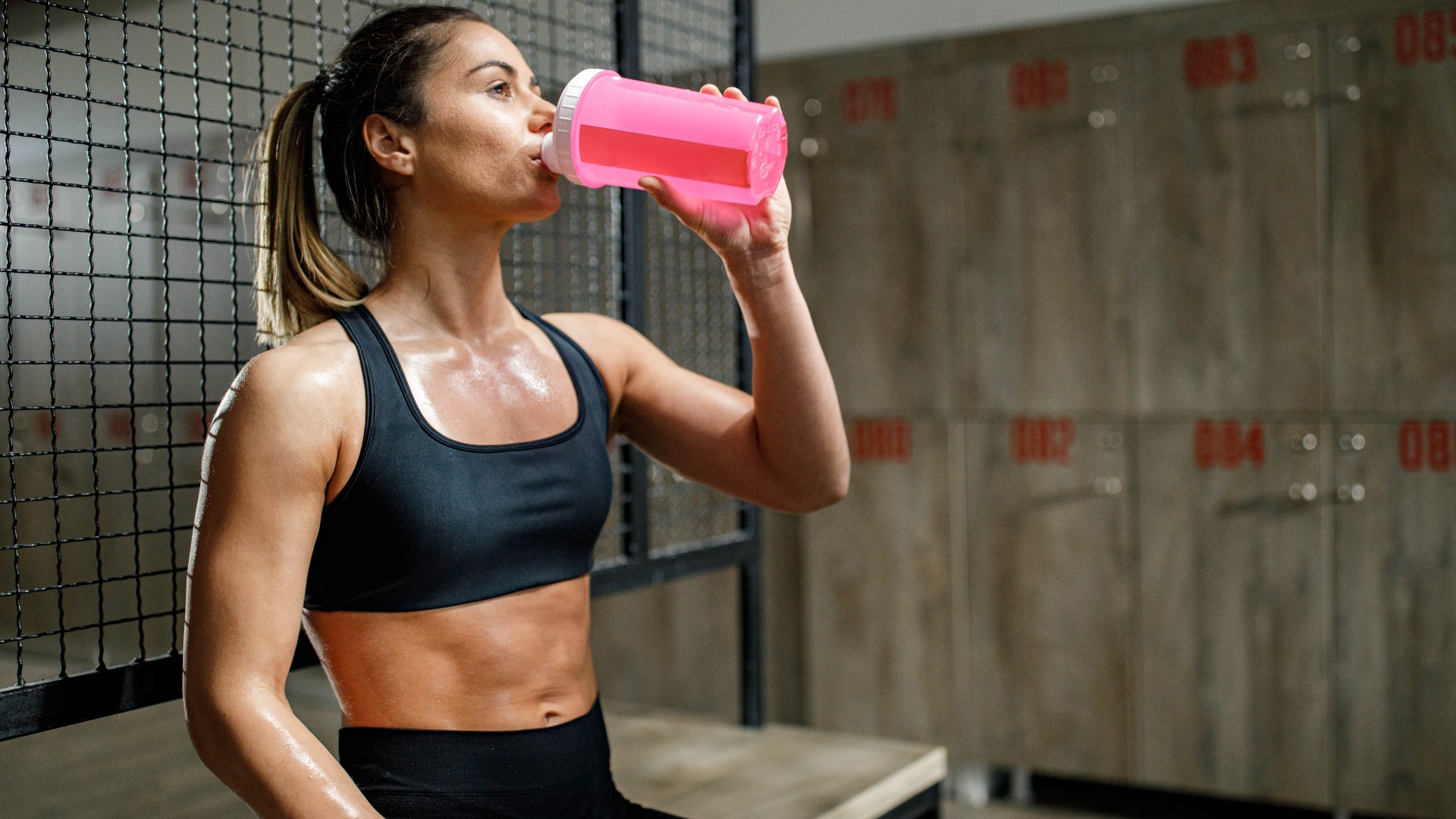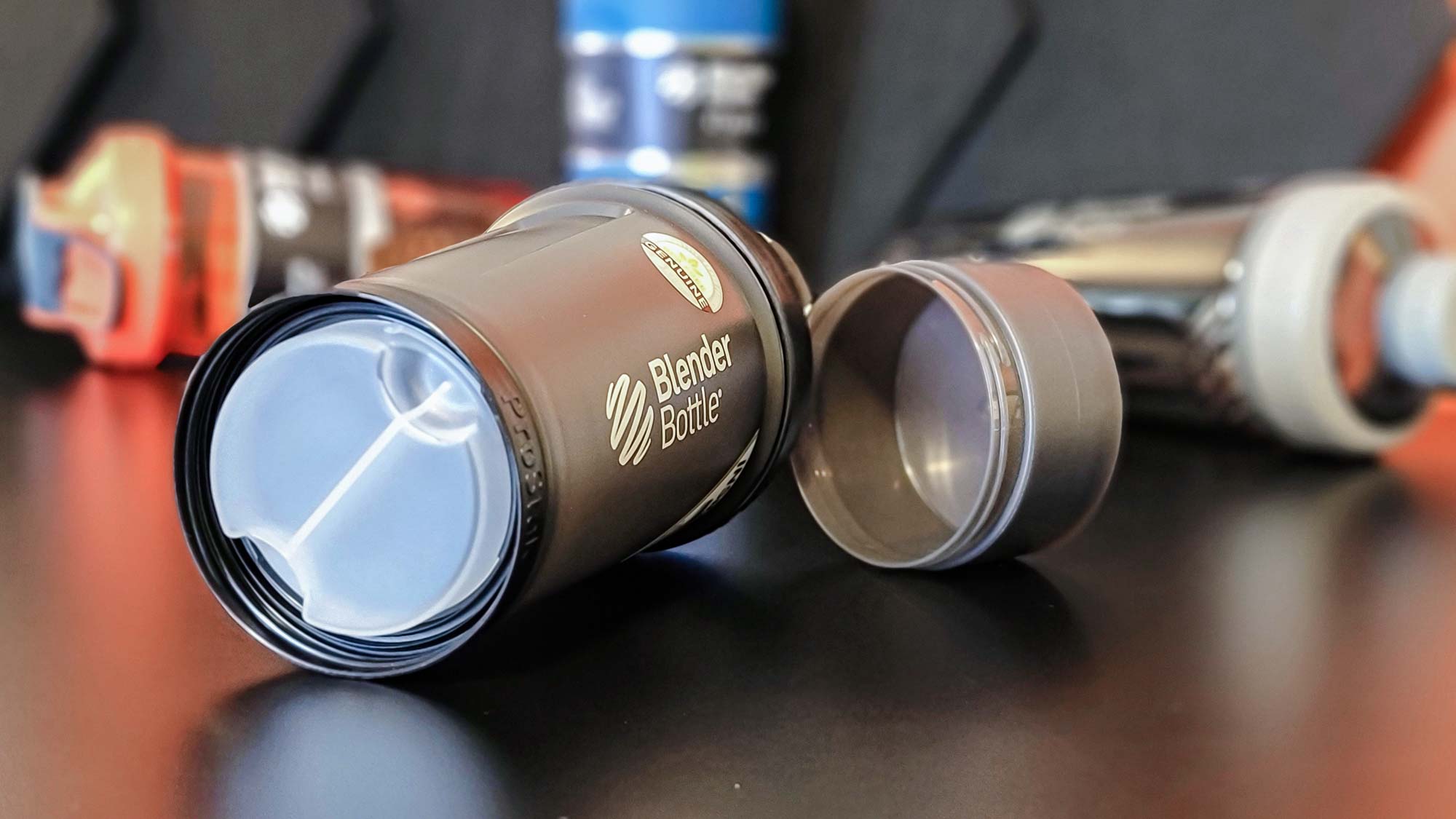
If you’re seeking a supercharged burst of energy before hitting the gym, you might be tempted to try a pre-workout, but knowing when to take pre-workout is crucial for helping you maximize sports performance.
We chatted with Leonie Funk, registered nutritionist and international athlete manager of the leading European nutrition brand, Foodspring, to get some answers. But before you dial it up on workouts using a pre-workout powder or supplement, check they’re suited for your goals first.
Research has shown that combining pre-workout with HIIT sessions improved measurements in lean body mass and VO2 max. The best pre-workout could also increase energy levels when you’re unmotivated to hit the gym, but they’re not for everyone. If you’re unsure whether to use pre-workout, we caught up with Funk to get some answers. Grab the best protein shakers to fuel your recovery, and read on for more.
Leonie Funk is a registered nutritionist and international athlete manager at the leading European nutrition brand, Foodspring, which provide high-quality products to support people’s training.
What is pre-workout?
Pre-workouts are a popular supplement consumed before exercise. The best pre-workouts have some perks — quite literally — and can delay physical and mental fatigue to improve focus, energy, and performance. However, most of the evidence supports the benefits of individual ingredients rather than pre-workout formulas as a whole.
Pre-workouts come in forms such as powders and drinks that you can mix into water, and whether you prefer strength training programs or running, pre-workout could support your muscles and mind and kick you in the right direction. The key ingredients found in pre-workout include caffeine, creatine, beta-alanine, and amino acids, all of which come with their health benefits.

When to take pre-workout
According to Funk, the best time to take a pre-workout is about 30-60 minutes before starting a session.
Caffeine is one of the main ingredients of pre-workouts, and you can feel the effects around 15 minutes after consuming, but the levels of caffeine in your blood will peak after approximately an hour. Try to start in half measures to avoid jitters and nausea — two common side effects of overdoing it.
Get instant access to breaking news, the hottest reviews, great deals and helpful tips.
“Creatine is also a popular ingredient as it helps to support muscle growth and improve performance,” Funk explains. “It has proven to be most effective taken just before or just after your workout, so having it in your pre-workout is useful.”
“As different products will have different ingredients, people will react in several ways to them,” she says. “So when you should take it will likely be personal.”
Leonie Funk
Funk adds that beta-alanine helps prevent lactic acid buildup in your muscles by increasing your body’s level of carnosine (a calcium regulator, and healthy calcium levels support muscle contraction), which is why it’s in pre-workouts. “Timing of this ingredient isn’t as important,” she adds. “Taking it consistently is more effective.” Lastly, BCAA’s (branch chain amino acids) help delay muscular fatigue, and levels peak in your blood 30 minutes after taking them.
If you enjoy a late-night sweat, avoid consuming pre-workout a few hours before bedtime, otherwise it could disrupt your sleep. You should always refer to the packing recommendations of your pre-workout but aim for at least four hours gap before bedtime.
How long does pre-workout last?
Depending on the brand, the pre-workout will contain different ingredients in varying quantities. While the full effects of pre-workout should peak around 30-60 minutes after consumption, effects could still last for a few hours afterward. Most pre-workouts contain upward of 150mg of caffeine (a key ingredient), meaning that the higher the dosage, the stronger (and potentially longer) the effects.
Factors such as sex and weight can also determine pre-workout sensitivity, so dose carefully and be conservative.

What does pre-workout do? Pre-workout benefits
Fueling properly before exercise, particularly high-intensity exercise, helps maximize the potential of workouts. Without fuel, you could find yourself tired, unmotivated, and weak. Pre-workout helps delay these effects and helps you push harder. Whether your goal is to build muscle and strength, burn calories, or improve endurance, a pre-workout could help, and with an energy boost under your belt, you might find those extra reps come easier.
Beta-alanine (an amino acid) is known for its positive impact on reducing fatigue and improving muscle performance. Research by the International Society of Sports Nutrition found that beta-alanine supplements increase carnosine levels. Carnosine is stored in your skeletal muscle and reduces lactic acid levels and exercise fatigue.
Over time, beta-alanine could improve carnosine levels by around 80%, improving overall sports performance and muscle endurance. Other studies found improvements in lean body mass after six weeks of using it.
Moreover, Funk says that your muscles can use BCAAs as an energy source during exercise, preventing muscle breakdown and ensuring your body continues to burn fat and build muscle even after you’ve stopped working out. Winner.
Why does pre-workout make you itch?
Itching can be a side effect of taking pre-workout, but it’s not a hard stop from using one. If you want a scoop of pre-workout before hitting the weights, consider the ingredients.
A skin-tingling sensation — the dreaded pre-workout itch — could be alarming, but don’t panic — it’s only temporary and should pass after 30-60 minutes. You can try reducing beta-alanine dosage to under 1.6 grams a serving or seek other active ingredients like caffeine that provide a kick instead. Eating could reduce the tingles by slowing the absorption of pre-workout ingredients, and a small meal could also help stabilize blood sugar levels and improve energy levels.
Is pre-workout bad for you?
For most people, pre-workout is perfectly safe and effective.
Always read the label and avoid pre-workouts that contain additives or don’t clearly state dosages or ingredients on the label.
Caffeine stimulates your nervous system, so controlling your dosage is your best bet, which can be done by isolating ingredients and spreading them throughout the day. If you notice adverse effects like swelling or pain, seek medical attention immediately, as this could indicate an allergy rather than sensitivity.
Niacin is also found in pre-workouts and helps the body turn food into energy. Overdoing it can cause adverse reactions like severe skin flushing, so check whether your pre-workout contains it first.
Verdict
In the U.S., dietary supplements are subject to regulatory gaps, which could make information misleading. If you plan to use them, choose supplements that are third-party tested and use clean ingredients.
And remember, prioritizing sleep and stress should also increase energy levels, alongside consuming a balanced diet. Fast-acting carbs or a cup of coffee are alternative ways to fire up energy levels before a beasting and could be just as effective at giving you a kick into gear, without any nasty side effects.
More from Tom's Guide
- Boost your metabolism without dieting, here's how
- This is the best time to drink a protein shake, and it's not when you think
- Muscle soreness and magnesium: could it improve workout recovery?

Sam Hopes is a level 3 qualified trainer, a level 2 Reiki practitioner and fitness editor at Tom's Guide. She is also currently undertaking her Yoga For Athletes training course.
Sam has written for various fitness brands and websites over the years and has experience across brands at Future, such as Live Science, Fit&Well, Coach, and T3.
Having coached at fitness studios like F45 and Virgin Active and personal trained, Sam now primarily teaches outdoor bootcamps, bodyweight, calisthenics and kettlebells.
She also coaches mobility and flexibility classes several times a week and believes that true strength comes from a holistic approach to training your body.
Sam has completed two mixed doubles Hyrox competitions in London and the Netherlands and finished her first doubles attempt in 1:11.
 Club Benefits
Club Benefits





